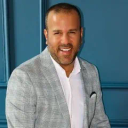
How to Ask For A Professional Reference
Discover expert tips on how to ask for professional references and boost your job prospects.

Gen Z recruiting in the 21st century can be perplexing for recruiters and hiring managers. These job seekers, born between 1997 and 2012, grew up with the Internet, DVD players, and heavily pixelated Flash games. In other words, they’re the first group of digital natives.
When it comes to work, Gen Z is confident and ambitious in their competencies and ability to tackle challenges. They seek prompt feedback and appreciate open communication across teams to understand their responsibilities. Transparency, authenticity, and a clear track record of ethical practices are important considerations for them.
Driven to improve and openly independent, recruiting Gen Z is a completely different ballgame from recruiting Millennials. They expect prompt email replies, a strong sense of purpose, and intriguing work that aligns with their values. Fostering an inclusive and supportive work environment is key to building long-term loyalty and employee engagement.
Gen Z will lead the future of the workforce as more Baby Boomers begin to retire (by 2030, all Boomers will be at least 65 years of age). In order to remain up to date and future-proof your business—learn how to attract, engage, and retain Gen Z talent, anywhere in the world.

Gen Z are sharp and quick learners who take pride in their independence and ability to acquire skills that help them in the workplace. Over three in four Gen Z workers agree that learning is the key to success in their career—be it workshops, modules, certifications, or job shadowing.
To attract the best Gen Z talent, start with job descriptions that clearly outline duties, salary, and space for growth. Emphasize benefits, maintain open communication through each step of the interviewing process, and leverage social media.
Gen Z wants to be recognized for their skills and competencies. They invest their time in learning—as one of the most formally educated cohorts—with 83% of the US cohort agreeing that a college education is “very or fairly important” today.
Focus on skills. LinkedIn data suggests that placing more emphasis on skills-based hiring can boost talent pools by 10x. Onboarding based on static personality traits or relying on behavioral multiple choice questions can be counterproductive.
Tests that mimic what a candidate is expected to perform on the job lead to better predictive validity (PV). Managers can secure the best hires from the get-go, before even conducting any live interviews. Skills testing and Gen Z are here to stay.
In 2025, Gen Z will make up approximately 27% of the workforce, which is more than a quarter. What are some ways to appeal to their career goals? And how can organizations better understand their professional goals to help them thrive?
To start, asynchronous video interviews allow candidates to take the initiative to check their schedule and complete their interview at a time that's convenient for them. They can practice ahead of time, and recruiters can play back the pre-recorded videos as many times as needed.
Give them clear expectations and salary ranges upfront. Gen Z workers are self-motivated and pride themselves on being able to get along with colleagues of varying demographics. For the best communication results, aim for succinct texts and video chats. Because they expect fast updates, it’s worth having a backup notification path in case a text message failed to send so candidates don’t miss time-sensitive steps.
With social media as their second language, Gen Z are technologically-savvy masters at networking and mingling. Employee referrals take the top spot on their job search preferences, followed by on-campus career fairs. Keep their top three values in mind:
Fair and equitable treatment of employees
Healthy work-life balance
A larger sense of social responsibility
“I saw your organization’s feed on Twitter.”
“A summer ago, my friend took on an internship here and enjoyed it.”
What does Gen Z look for in a job—what inspires them to stay in a position? How does Gen Z decide when to leave, and what platforms are they on while searching?
Gloria Chen, Chief People Officer of Adobe, has an eye-opening observation on working with Gen Z:
They want to do meaningful work and see impact sooner. They don’t want to just be a cog in the machine.

Gloria Chen
Chief People Officer of Adobe
Sometimes known as the “chronically online” generation, these young adults look past traditional brick-and-mortar jobs. They’re brimming with ideas to appeal to employers on their radar, and how to reinvent the wheel.
More than any other method, Gen Z candidates value referrals to land a position in a company. They place extra emphasis on their friends’ inputs and will do research on an organization’s culture beforehand—through social media and sites like Glassdoor.
So, what does Gen Z appreciate in their immediate work environment? These tech-savvy, social media fanatics value freedom, autonomy, and continual support for their professional goals. Gen Z possesses an entrepreneurial mindset and actively seeks opportunities to fast-track their career goals.
According to Deloitte, 54% of Gen Z employees say that hybrid work is beneficial for their mental health, over full-time in-office mandates. This allows them the flexibility to engage with their team and enough time to expedite errands during work-from-home breaks.
Out of all generations in the workforce, Gen Z is the most likely to switch jobs after a few years (also known as job hopping). What propels them to jump back into the job search even when they’re employed? The answers are complex, and involve more than one reason:
Space for advancement and opportunities to upskill
Better benefits, company culture, and work environment
Salary increases, attractive sign-on bonuses and packages
More meaningful, engaging, or interesting work
Mental health is health, and Gen Z prioritizes work-life balance as well as transparency from their employers. Forcing overtime or neglecting their concerns for their wellbeing pushes them away and would make them reconsider jumping ship to another company with values that align more closely.
Gen Z craves purpose. They want to make a difference in the world—however that may look like. They care about a competitive salary, and appealing duties on the job. They appreciate ample time to recharge and focus on their lives outside of work.

Half of Gen Z workers have turned down a project or assignment due to a mismatch in their personal beliefs. 44% have rejected an employer based on their personal ethics. To successfully recruit and retain Gen Z talent, organizations must go beyond surface-level commitments and show alignment between corporate values and actions.
They find strength in an unwavering attitude geared towards an inclusive employee experience for a more holistic, well-rounded workspace where everyone can thrive. As a purpose-driven generation, explain how their individual contributions matter in the bigger societal picture.
Some Gen Z friendly additions to the workforce could look like:
Collaborative workspaces with choices for seating, standing, and exercise
Flexible work arrangements (remote, hybrid, or in-office)
Mentorship programs, workshops, seminars, and professional development events
Wellness retreats or initiatives to give back to charities and philanthropic organizations
Gen Z is also acutely aware of the many factors that can impact their job performance. They’re willing to put in the work to understand how to better manage their stress, which sits at the highest at 68% compared to 63% (Millennials), 56% (Generation X), and 40% (Boomers).
Respect their autonomy as well as requests for scheduled days off, and keep work-related communication to a minimum outside of work hours. This will encourage Gen Z to deliver consistent, high-quality work on time—and stay motivated, positive and productive.
As the first group of digital natives, Gen Z is disrupting the recruitment process and shaking up hiring trends. As automated technology continues to grow and shape the world of work, hiring managers can step in to maximize their toolkit for interviewing and onboarding the best Gen Z talent.
This group wants to create the next new thing. They’ve seen tremendous inventions already so they grew up thinking that innovation is more normal than exceptional [...] they can move well in any environment and shift to fix unexpected problems,

Baruch Labunski
Marketing Technology Entrepreneur
From hybrid interviewing to digital panel interviews, a recruitment suite can be your solution to successful Gen Z hiring. Recruiters and managers can find and secure the youngest generation of talent with a deep understanding of inclusivity, the hybrid work scene, and HR technology.

A passion for entrepreneurship, creative problem-solving skills, and tech-savviness. Gen Z is highly adaptable, and able to jump on new technologies, work environments, and challenges—making them well-equipped to thrive in rapidly changing industries.
Gen Z values flexibility, meaningful work, work-life balance, and opportunities for growth. To attract and retain Gen Z, offer competitive salaries, clear career development paths, and a collaborative, inclusive culture. Make full use of digital platforms, social media, and mobile-friendly job applications to reach them where they’re most active.
Clear, concise communication. Gen Z tends to pick up digital software quickly—channels like text, social media, and messaging apps come naturally to them. They appreciate transparency and regular feedback through each step of the recruitment process.
The youngest working cohort is drawn to organizations with strong values, diversity, and social responsibility. Gen Z recruiting involves more than an alignment with their hard and soft skills, as they proactively look for organizations with a mission statement grounded in a vision for a better, more inclusive future.
Modernize your hiring process with expert insights and advice.